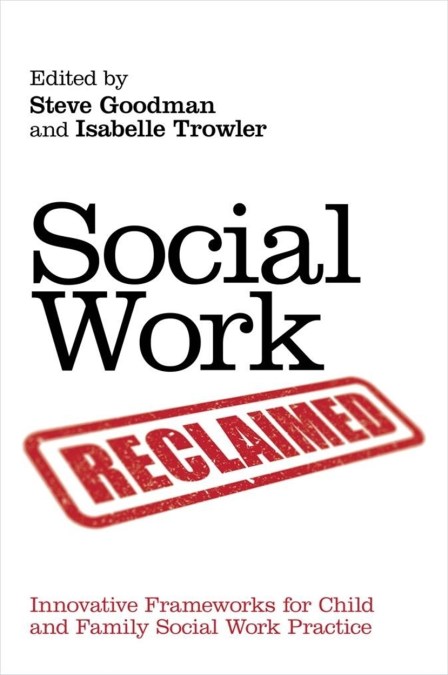Reclaiming Social Work (RSW) is a radical new system for delivering child and family social work in the UK. The system was first piloted in the London Borough of Hackney and the model has gained national recognition. At the heart of this innovative system is the endeavour to keep children together with their families.
This book sets out what the Reclaiming Social Work model is, how it was implemented, and how it works. It explains the RSW system of social work ‘units’ made up of clinicians and therapists and headed by a consultant social worker, and demonstrates how it has worked in practice. The evidence base and theories underlying the model are also explained. Several chapters are written by consultant social workers with extensive experience of working within RSW, which outline the methodological approaches used.
This book on a pioneering new social work model will be of great interest to social work managers, policymakers and academics.
This book sets out what the Reclaiming Social Work model is, how it was implemented, and how it works. It explains the RSW system of social work ‘units’ made up of clinicians and therapists and headed by a consultant social worker, and demonstrates how it has worked in practice. The evidence base and theories underlying the model are also explained. Several chapters are written by consultant social workers with extensive experience of working within RSW, which outline the methodological approaches used.
This book on a pioneering new social work model will be of great interest to social work managers, policymakers and academics.
Newsletter Signup
By clicking ‘Sign Up,’ I acknowledge that I have read and agree to Hachette Book Group’s Privacy Policy and Terms of Use
Reviews
This book is the account of how the London Borough of Hackney took up the same challenge in its children's services. It brings seriously good news from every point of view. From a professional perspective, it offers a model of practice that is coherent, ethical and effective in changing people's lives. From a managerial perspective, it demonstrates how to produce change in a large bureaucratic organisation, to make it more effective and simultaneously save resources of time and money. From a political perspective, it takes social workout of the hair of politicians and out of the media limelight.
Reclaiming Social Work is the answer provided in the London Borough of Hackney. The editors and Debra Philip (the latter of whom the book is dedicated to) led a radical change to the delivery of social work services in the borough. An evaluation in 2010 found that since the introduction of the model there had been a reduction in costs fewer children in public care, a reduction in staff sickness and improvements in practice... this is a stimulating and at times inspiring read to be recommended to practitioners, managers and policy makers.
Social Work Reclaimed sets out the "story" of the Reclaiming Social Work model from its pilot in the London Borough of Hackney to its position as an internationally recognised progressive model of social work. The contributors to the book illuminate the reader about the methodology, values and practicalities of the operational model of Reclaiming Social Work that Hackney rolled out...Social Work Reclaimed will interest any practitioner who is concerned with the challenge for social workers to effect change in complex family systems. It should also be essential reading for anyone who is interested in an evidence-based alternative to how child and family statutory services are currently organised, and how the future of social work could be shaped to be a more positive experience for families in crisis and social workers themselves.
This book offers an exciting and persuasive account of how children and their families can receive better help from social workers... [It] shows one successful way of reforming social work to produce not just a happier workforce but, more importantly, happier children, young people and families.
Edited by two of the key innovators in child and family services in England, this book could not be more timely. The Munro Review of child protection in England has recommended a sea change in the way services are designed, with an emphasis on local innovation. That Steve Goodman and Isabelle Trowler achieved such a system redesign whilst under the strictures of a particularly pernicious centralised regime is a noteworthy, indeed remarkable, achievement. Managers in children's services need to see design as their day job, and they need to design around the needs of families. This book is indispensable for social work managers, social workers and academics. Buy it, read it, do it.
